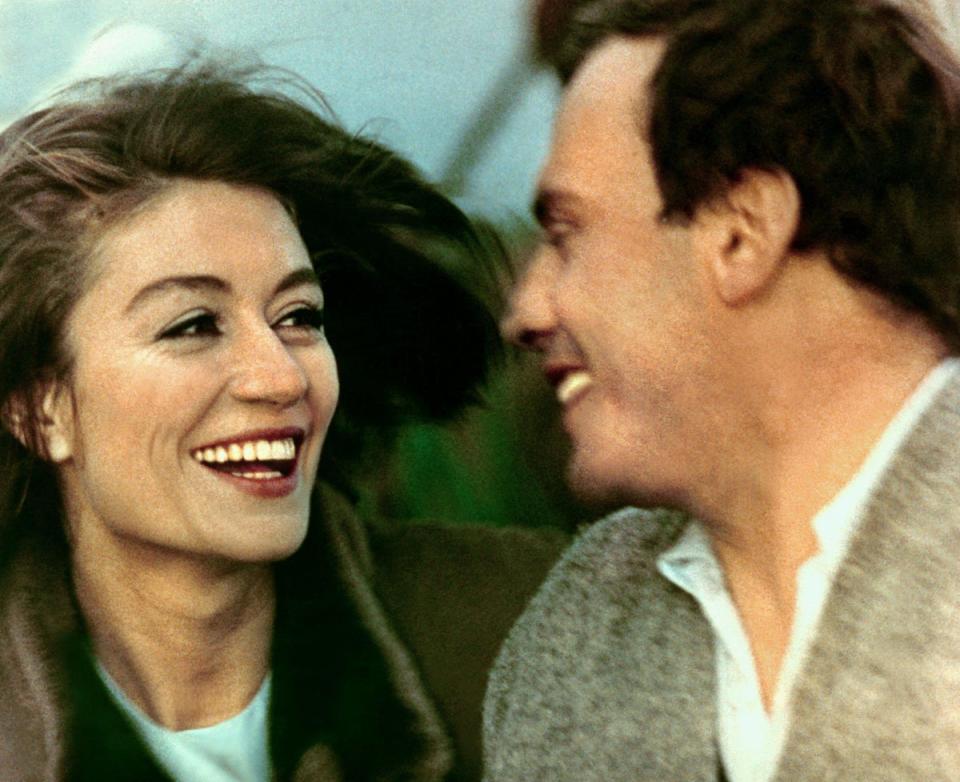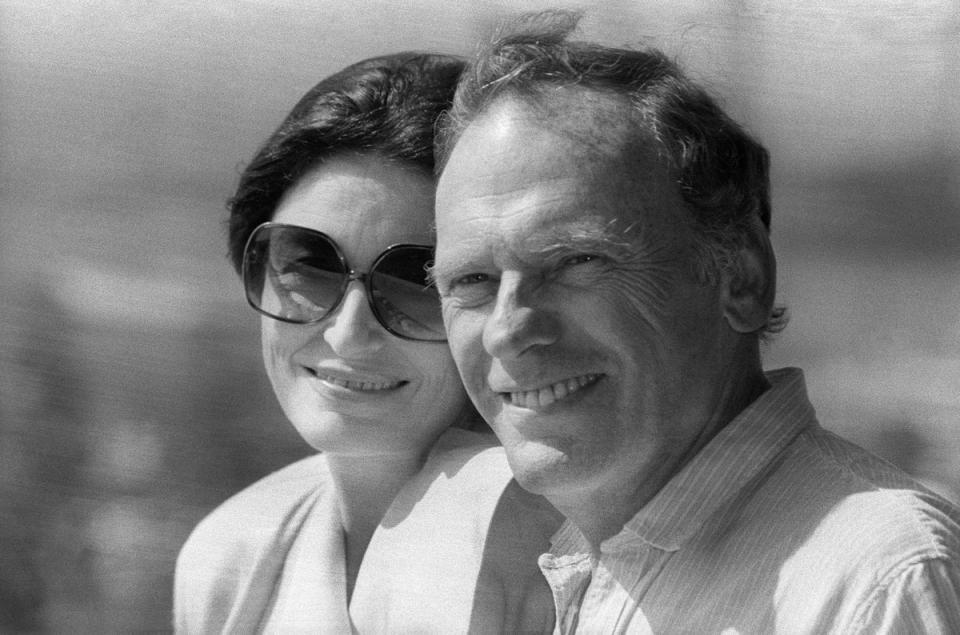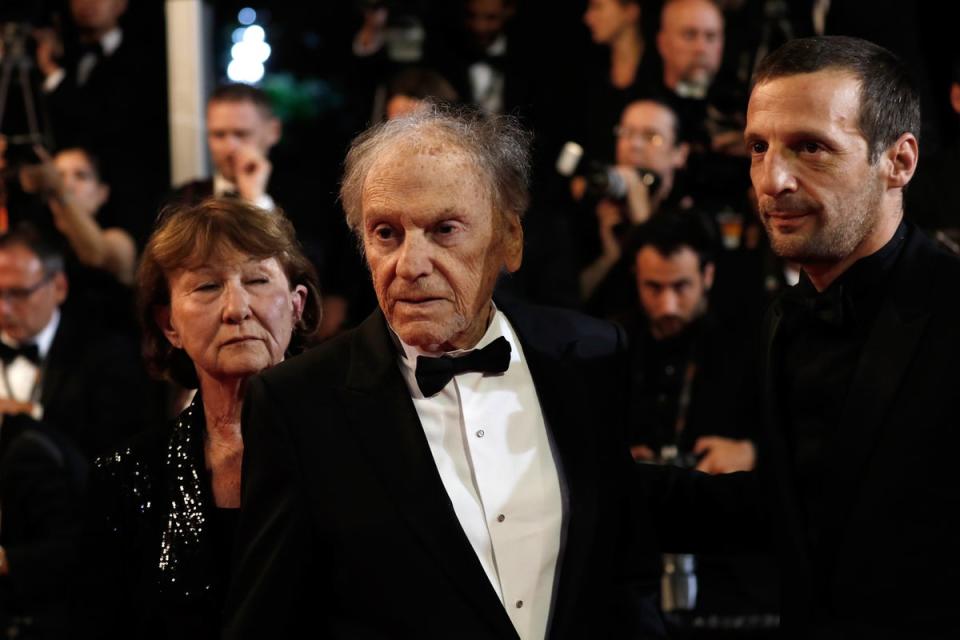Jean-Louis Trintignant: French new wave legend who became a global star

Jean-Louis Trintignant, who has died aged 91, was a star of French new wave cinema and burst onto the international scene in the 1966 film Un Homme et Une Femme (A Man and a Woman).
He played a racing driver who found new love with a widow, played by Anouk Aimee, following the suicide of his wife. Their sensitive performances, alongside director Claude Lelouch’s visually stunning imagery and Francis Lai’s sentimental music, helped it to win two Oscars and the Cannes Film Festival’s top prize, the Palme d’Or.
But Trintignant insisted he preferred his hairpin racing turns in Monte Carlo to the love scenes with Aimee, which he found embarrassing because she was a friend of his second wife, director Nadine Marquand.
Ten years earlier, Trintignant’s career in France had taken off with Et Dieu... Crea la Femme (And God Created Woman) when he took the role of the uncool Michel, who beats his brother, in the lush surroundings of Saint-Tropez, to the hand in marriage of Brigitte Bardot’s free-spirited young woman but finds she continues to bestow her favours on other men.
The film made a star – and sex symbol – of Bardot, and Trintignant had a much-publicised affair with her that signalled the end of his first marriage, to Stephane Audran. After the success of A Man and a Woman, one of the new wave’s leading directors, Claude Chabrol, brought an added interest to the menage a trois story Les Biches (1968) by casting Trintignant alongside Audran, by then his own wife. He played an architect drawn into a relationship between Jacqueline Sassard’s poor student and Audran’s rich older woman.

Romance was traded for edge-of-your-seat drama when Costa-Gavras directed him in Z (1969) as a tenacious prosecutor investigating the death of Yves Montand’s politician – based on the real-life story of a Greek pacifist’s assassination. Trintignant’s performance won him Cannes’ Best Actor award.
He then reversed roles and played the assassin – taking orders from the fascist government in pre-Second World War Italy – when director Bernardo Bertolucci cast him in another political thriller The Conformist (1970).
But the actor noted for his innate shyness turned down an offer from Bertolucci to star in Last Tango in Paris (1972), leaving Marlon Brando to navigate the controversial film.
Trintignant returned to both the romance and dramatic heights of his early films in the 2012 Oscar- and Bafta-winning heartbreaker Amour. Austrian director Michael Haneke persuaded him to come out of screen retirement to play the retired piano teacher caring for his wife (Emmanuelle Riva) as her health slowly deteriorates, a moving performance that switches between love and frustration.

Jean-Louis Xavier Trintignant was born in the Piolenc commune of Vaucluse, in the south of France, to Claire and Raoul Trintignant.
Like his character in A Man and a Woman, two of Trintignant’s uncles, Maurice and Louis, were professional racing drivers, while the actor himself took to the wheel for fun as a rally driver. He left law school in Aix-en-Provence after a year when he became stage-struck after seeing a theatre production of Moliere’s comedy The Miser and moved to Paris to study acting at the national film school IDHEC – Institute for Advanced Cinematographic Studies.
Stage roles came his way and, in 1955, he made his film debut in Si Tous les Gars du Monde (titled Race for Life internationally), playing a radio operator receiving signals from a distressed fishing boat crew dying of food poisoning.
He survived his affair with Bardot not only by trooping off for national service for two years but, on his return, being cast in a new wave version of Les Liaisons Dangereuses (1959) as charming music teacher Danceny.

Trintignant was reunited with Aimee and Lelouch for the film sequels Un Homme et Une Femme: 20 Ans Deja (A Man and a Woman: 20 Years Later, 1986) and 2019’s Les Plus Belles Annees d’Une Vie (The Best Years of a Life), with Trintignant ailing in a care home and Aimee running a shop.
His other significant film roles included Simone Signoret’s lover in the Costa-Gavras-directed detective thriller Compartiment Tueurs (The Sleeping Car Murders, 1965), a drug smuggler in Trans-Europ-Express (1966) and a devout Catholic engineer resisting the advances of an alluring widow in Eric Rohmer’s Ma Nuit Chez Maud (My Night With Maud, 1969) while keeping himself for a woman he is certain he will marry but has never met.
Trintignant turned down roles in Close Encounters of the Third Kind (1977) and Apocalypse Now (1979) after moving back to the south of France to live in a medieval house in Uzes. Becoming more of a recluse himself, he only occasionally stepped out of his rural lifestyle when he was tempted by parts such as a reclusive judge in Red (1994), the last in Polish director Krzysztof Kieslowski’s Three Colours trilogy.
Later, Haneke brought him out of retirement again for Happy End (2017) to revive his Amour character, now suffering from dementia and determined to end his own life.
His autobiography, Du Côté d’Uzès, was published in 2012.
Trintignant’s first two marriages, to Audran (1954-56) and Marquand (1960-76), both ended in divorce. He is survived by his third wife, Marianne Hoepfner, an endurance driver whom he married in 2000, and Vincent, the son from his second marriage. He and Marquand’s other children, Pauline and Marie, predeceased him.
Jean-Louis Trintignant, actor, born 11 December 1930, died 17 June 2022

 Yahoo News
Yahoo News 